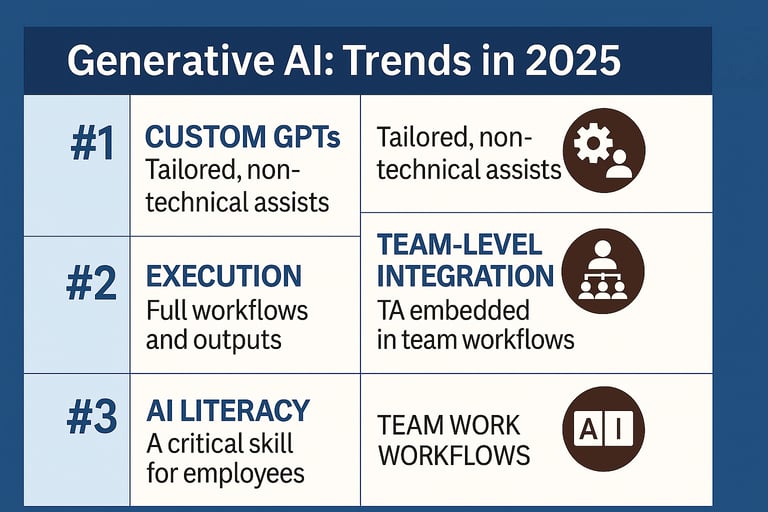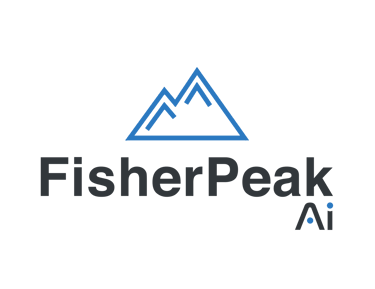Generative AI: A Year of Rapid Evolution—and What It Means for You
Generative AI didn’t just evolve this year—it accelerated. From personalized AI assistants to full team-level integrations, 2025 marks a major shift in how organizations and individuals are using AI. This post breaks down the key trends from the past 12 months, based on insights from Harvard Business Review, and what they mean for your work going forward.
Grant DeCecco
5/12/20252 min read


Over the past 12 months, generative AI has moved from early experimentation to mainstream adoption. The recent Harvard Business Review article, How People Are Really Using Gen AI in 2025, highlights how much has changed—and where we’re heading.
Here are the biggest shifts I took away from the article and what they might mean for you:
1. Custom GPTs Have Gone Mainstream
Then: Most people used ChatGPT or Bard out-of-the-box.
Now: Custom GPTs are everywhere—tailored assistants for legal teams, sales reps, HR departments, and more. Non-technical users can build and share them without writing code.
This shift means AI is no longer generic—it’s personal. You can train tools to reflect your industry, your role, even your tone.
2. AI Usage Has Shifted from Ideation to Execution
Then: AI was used to brainstorm ideas, summarize documents, or write emails.
Now: People are using AI to build workflows, generate full proposals, automate meeting prep, and even manage task lists.
The focus has moved from inspiration to output—turning ideas into action.
3. Team-Level Integration Is Taking Off
Then: AI tools were siloed—used by individuals, not teams.
Now: Teams are embedding AI into shared workflows—like project updates, client reporting, onboarding, and QA processes.
This is changing how teams collaborate and standardize quality.
4. AI Is Becoming a Learning and Development Coach
Then: Learning tools were static—LMS platforms or pre-set training modules.
Now: AI is being used to deliver personalized career advice and skill-building paths, like Salesforce’s Career Agent.
This shows how HR isn’t just adopting AI—it’s being redefined by it.
5. AI Literacy Has Become a Core Skill
Then: AI skills were optional or limited to early adopters.
Now: They’re table stakes. Everyone from interns to executives is expected to understand how to prompt, review, and apply AI effectively.
That means training isn’t a nice-to-have anymore—it’s a must.
What This Means for You
Whether you’re leading a team or just starting to explore AI, the message is clear:
Generative AI has matured.
You don’t need to be a tech expert to get value
Custom tools are easier to build and share
Team adoption unlocks the biggest productivity gains
The sooner you adopt, the faster you build the skills everyone will soon expect
Curious where to start?
Focus on areas where people already do repetitive or high-volume work—reporting, emails, documentation, or career planning. That’s where AI can deliver immediate value.
Want help making generative AI part of your workflow? Let’s connect.
